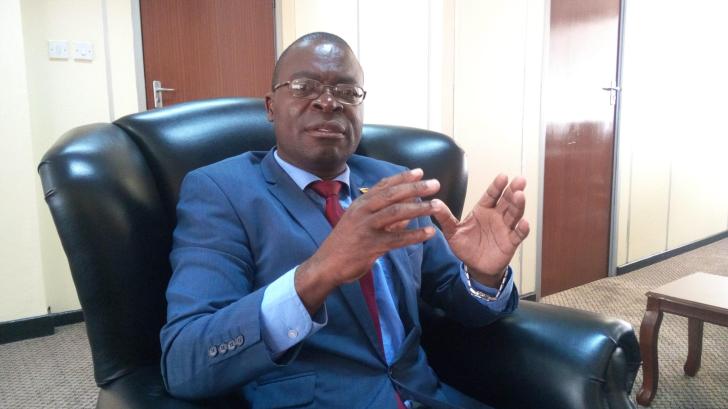News / National
3 local languages remain mandatory for teachers
08 Jun 2024 at 11:52hrs |
0 Views

The policy requiring teachers in Zimbabwe to learn three local languages besides their mother tongue remains in effect, as confirmed by Higher and Tertiary Education Minister Professor Amon Murwira.
Responding to Senator Annah Shiri's inquiry about incorporating minority languages like sign language into tertiary education, Prof Murwira affirmed the policy, which aims to enhance student competency in regional languages.
Introduced in 2018, this policy mandates that teachers master three additional local languages by graduation.
The government collaborates with institutions like Midlands State University to translate the Zimbabwean Constitution into all official languages, reflecting a commitment to inclusivity.
Prof Murwira urged continued financial support for these initiatives, emphasizing the importance of language expertise and inclusivity in education.
Matabeleland North Senator Rebecca Fanuel raised concerns about non-Tonga speaking teachers in Binga, which affects primary school pass rates.
Prof Murwira reiterated the government's stance that Early Childhood Development learners must be taught in their mother tongue, a position that is binding under the new Heritage-based Education 5.0 framework.
Prof Murwira also noted that the policy of teachers learning multiple local languages has produced "multi-dialect graduates" since 2021.
He highlighted the establishment of Hwange Teachers' College in 2019, which recruits students who speak local languages such as Nambya and Tonga. Additionally, an industrial college has been set up in Binga to further educational inclusivity.
While acknowledging the need for faster progress, Prof Murwira reaffirmed the government's commitment to the policy and its ongoing implementation to ensure that teachers can speak the languages of their students, thereby enhancing educational outcomes and inclusivity across Zimbabwe.
Responding to Senator Annah Shiri's inquiry about incorporating minority languages like sign language into tertiary education, Prof Murwira affirmed the policy, which aims to enhance student competency in regional languages.
Introduced in 2018, this policy mandates that teachers master three additional local languages by graduation.
The government collaborates with institutions like Midlands State University to translate the Zimbabwean Constitution into all official languages, reflecting a commitment to inclusivity.
Prof Murwira urged continued financial support for these initiatives, emphasizing the importance of language expertise and inclusivity in education.
Matabeleland North Senator Rebecca Fanuel raised concerns about non-Tonga speaking teachers in Binga, which affects primary school pass rates.
Prof Murwira reiterated the government's stance that Early Childhood Development learners must be taught in their mother tongue, a position that is binding under the new Heritage-based Education 5.0 framework.
Prof Murwira also noted that the policy of teachers learning multiple local languages has produced "multi-dialect graduates" since 2021.
He highlighted the establishment of Hwange Teachers' College in 2019, which recruits students who speak local languages such as Nambya and Tonga. Additionally, an industrial college has been set up in Binga to further educational inclusivity.
While acknowledging the need for faster progress, Prof Murwira reaffirmed the government's commitment to the policy and its ongoing implementation to ensure that teachers can speak the languages of their students, thereby enhancing educational outcomes and inclusivity across Zimbabwe.
Source - The Herald
Join the discussion
Loading comments…
































